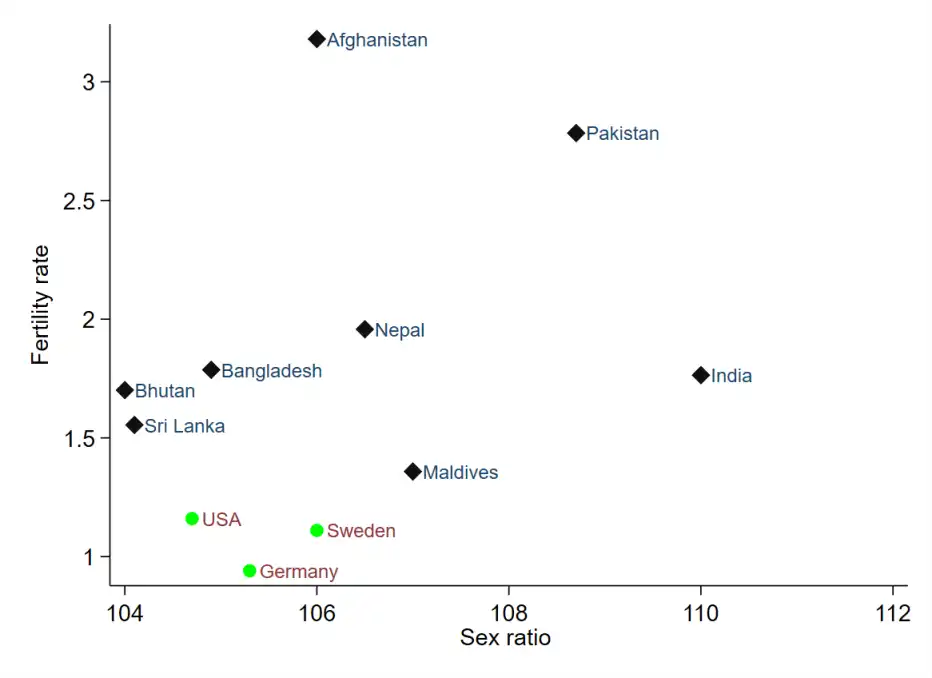How Son Preference Affects Child Health, Household Expenditure, and Food Security:Causal Evidence from Rural Bangladesh
 Sex rario and birth rate around the world
Sex rario and birth rate around the world
 Sex rario and birth rate around the world
Sex rario and birth rate around the world
Malnutrition is a severe problem in the developing world that is yet to be solved. We analyze the impact of son preferences on individual and household-level nutritional outcomes. First, we show how the presence of a second-born female in the family affects the health and nutritional outcomes of first-born children. Using nationally representative data from rural Bangladesh and utilizing the randomness of the second child's gender, we observe that if the second-born is a female in a family, then the first-born's health measures significantly change. If there is a second-born female in a family, there is a significant reduction in the per capita nutrient intake. This reduction significantly affects the anthropometric measurement of the first-born child, leading to a reduction in BMI-for-age. Results indicate that families tend to give less emphasis on nutritional attributes when there is a female child, which affects the other children in the family as well.
Using two-period panel data on the same households and employing a difference-in-difference-in-difference (ddd) regression framework, we show that removed financial constraints through Feed the Future programs do not encourage families with second-born female children to diversify food consumption. We conclude that being a daughter, especially in lower birth order, is still distress in developing countries because neither they attract parental attention nor their food consumption and other expenditures are appropriately fulfilled.
Data Used: Bangladesh Integrated Household Survey (BIHS)- 2011/12 and 2018/19
Method Used: Randomness of gender of second child, difference-in-difference, difference-in-difference-in-difference
Literature: Health Economics, Economics of Gender, Nutrition
Presented: Cologne, Essen, Bologona, Hannover
In the fight against child marriage worldwide, policy initiatives establishing legal marriage ages have notably shifted the dynamics of underage marriages, enforcing strict adherence to legal marriage norms to evade prospective legal repercussions. This study delves into the complex interplay between the dynamics of the marriage market and health investments in women, especially in the societal context of India, which presents a contrasting backdrop with conventional approaches seen in high-income countries. Investigating variations in pivotal health indicators immediately preceding and following the attainment of legal marriage age, this research, utilizing a sample of women aged 17 to 19 from the Indian Demographic and Health Survey (DHS) of 2019/20 and employing the regression discontinuity method, seeks to comprehend the continuity and potential necessity for sustaining health investments in women through external financial interventions. Preliminary findings substantiate the hypothesis that the marriage market dynamically induces health investments in Indian women, providing a pivotal starting point for further policy discussions and potential modifications concerning the evolutionary trajectory of women’s health as they transition into the marriage market, with a cutoff meticulously evaluated at the legal age of marriage, noted as 18 during the survey period.
Data Used: India Demographic & Health Survey (DHS), 2019-21.
Method Used: Regression discontinuity design (RDD)
Literature: Demographic Economics, Health Economics, Marriage
Presented: Capetowm, Hannover